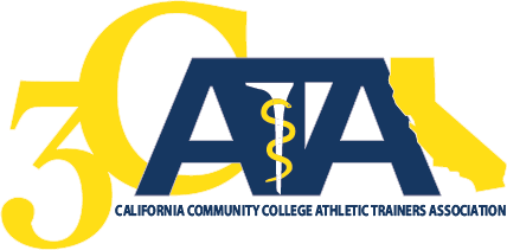- Communicate with student athletes regarding injury prevention; advise student athletes in the selection and use of protective devices and equipment.
- Communicate and counsel student athletes concerning injuries and risk of re-injuries; counsel and advise athletic staff and teams on potentially hazardous situations to ensure safe participation.
- Provide athletic training coverage for all home/hosted contests as described by the CCCAA bylaws. Design and administer a concussion management plan that reflects current standards and practices regarding concussion management.
- Coordinate and schedule physical examinations and medical referrals for student-athletes to determine their ability to practice and compete. Assist the team physician in conducting physical examinations of athletes prior to participation in intercollegiate sports; obtain athlete medical histories.
- Design, fabricate, fit and apply appropriate taping, wrapping and protective devices to prevent injury and re-injury of student athletes; inspect equipment and playing areas for safe conditions. Communicate with athletic training students about appropriate taping, wrapping, and protective devices to prevent injury and re-injury.
- Attend assigned sporting events and perform emergency first aid in the event of injury to players; administer CPR or AED, clean, dress and bandage minor cuts, bruises, lacerations, abrasions and blisters. Communicate student athletes and athletic training students on how to clean and dress minor cuts, bruises, abrasions and blisters to avoid infection.
- Recognize and evaluate injuries/illnesses of student athletes; assess and management concussions; inspect injured areas; recognize severity of trauma and functional status of athletes;
- Refer athletes to appropriate medical personnel and facility in the event of injury; assist students to process insurance claims; coordinate with insurance and medical providers
- Design and administer rehabilitation to injured athletes; develop criteria to restore athletes to full, functional participation status; use appropriate therapeutic modalities and exercises for rehabilitation including strengthening, stretching, conditioning or nutrition programs; communicate student athletes regarding the proper techniques in rehabilitation; maintain accurate records of injury, treatment and rehabilitation of all student athletes.
- Develop and maintain current Emergency Action Plan (EAP) for all athletic competition locations, including the Athletic Training Facility (ATF). Train athletic training students on EAP procedures; review EAP annually.
- Establish and maintain communication with coaches to provide day-to-day progress reports on injured athletes.
- Work in conjunction with athletic department staff to ensure safety in the design and implementation of fitness, nutrition and conditioning programs customized to meet individual needs.
- Inventory all athletic training supplies and order supplies for up-coming school year; evaluate and recommend techniques and equipment that would benefit the ATF.
- Establish and maintain accurate records for eligibility based on physical examinations; maintain accurate and detailed records of injuries, treatment, and correspondence with physicians.
- Perform related duties and responsibilities as required.
|
|
Knowledge of:
- Principles, procedures and applications of sports medicine/athletic training.
- Principles and practices of blood borne pathogen precautions and OSHA regulations.
- Methods and techniques of injury evaluation.
- Principles and practices of handling confidential medical information and HIPPA regulations.
- Methods and techniques of taping and bandaging athletes for sporting events.
- Theories and applications of anatomy and physiology.
- Modern practices, techniques and protocols of preventive and rehabilitative treatment used in athletics.
- Principles and practices of Kinesiology/biomechanics.
- Principles, methods and techniques of emergency first aid, C.P.R. and automated external defibrillators (AED)
- Pertinent Federal, State and local laws, codes and regulations.
Ability to:
- Perform a variety of professional athletic training duties for college athletes.
- Communicate with student-athletes and athletic training students about various injuries, illnesses, anatomy and physiology of injuries and illnesses.
- Use and instruct students in therapeutic modalities.
- Maintain accurate injury reports, individual rehabilitation notes, and daily treatment logs.
- Communicate with coaches regarding student-athlete injuries and their physical/clearance status.
- Manage medical clearances for student-athletes.
- Maintain accurate inventory, order supplies and equipment, as needed.
- Oversee athletic training interns.
- Administer a variety of preventive and rehabilitative treatments to athletes.
- Evaluate and treat a variety of sports-related injuries.
- Recognize severity of injury and refer athletes to appropriate medical personnel.
- Tape, bandage and splint athletes, administer first aid and immobilize injuries.
- Counsel and advise student athletes regarding injuries.
- Communicate clearly and concisely, both orally and in writing.
- Establish and maintain effective working relationships..
- Pass the annual California Community Colleges Athletic Association (CCCAA) rules exam with a score of 80% or higher.
- Sensitivity to and understanding of, the diverse academic, socioeconomic, cultural, linguistic, ethnic backgrounds and disabilities of community college students and staff.
- Work in indoor and outdoor environments; exposure to heat, cold, and inclement weather conditions; continuous standing and walking; moderate lifting and carrying; travel from site to site.
Education and Experience Requirements:
Education:
Bachelor’s degree from an accredited college or university with major course work in physical education, sports medicine or a related field. Certification by the National Athletic Trainers Association Board of Certification (NATABOC)
Experience:
Three (3) years of responsible experience in practicing sports medicine, athletic training or physical therapy.
Desirable Qualifications:
Five years of collegiate football training experience.
Licenses/Special Requirements:
Possession of, or ability to obtain, an appropriate, valid first aid and CPR/AED certificates.
|


